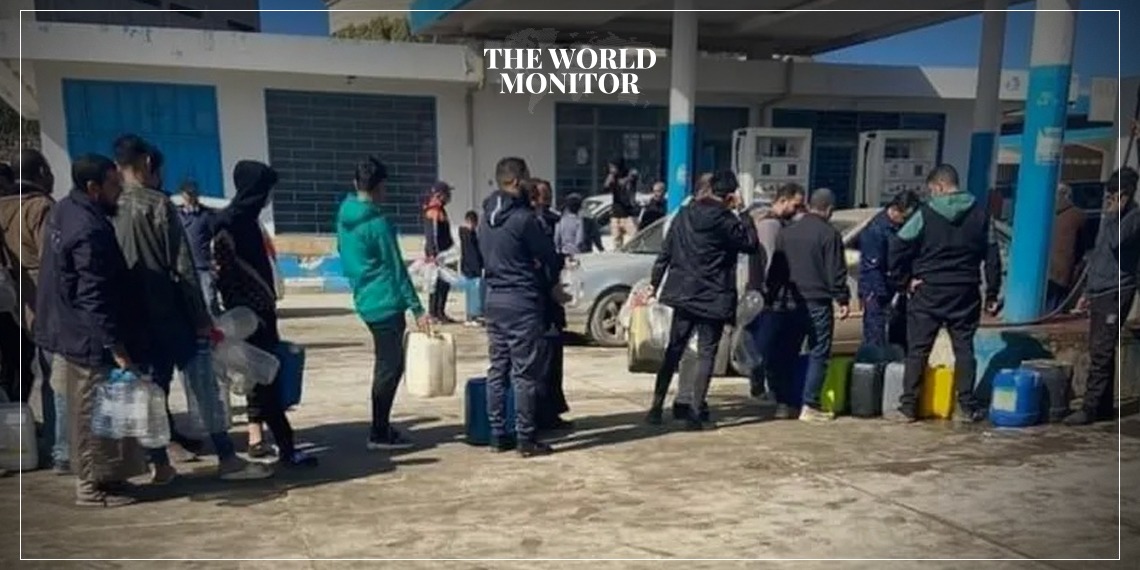Despite government assurances of resolving the crisis and security campaigns to curb smuggling, the fuel crisis has recently escalated, reaching its peak in southeastern and southwestern cities of Libya.
These regions are now grappling with the unavailability of gasoline and gas, while the black market activity has surged.
Ahmad Al-Mashati, a resident of Awjila affected by the fuel shortage, shared with Al-Arabiya.net that acquiring even a few liters of gasoline or a gas cylinder now requires waiting over 10 hours in line at distribution stations, which are irregularly supplied.
Contrary to this, the state-owned Brega Marketing Company denies any crisis, asserting that fuel is readily available and that supplies are continuously being dispatched to all Libyan regions around the clock.
However, Al-Mashati points out that gasoline is only available in the eastern and western regions, leaving his car out of fuel for a week and significantly hindering his mobility.
Al-Mashati accuses armed militias in both the west and east of Libya of facilitating the theft and smuggling of fuel to neighboring countries before it reaches its intended destinations.
This, he claims, is the primary and apparent cause of the recurring crisis, which remains unresolved despite the existence of numerous high-budget security agencies incapable of securing the nation’s borders, combating smuggling, or eradicating the black market for gasoline.
The situation has become unbearable, with long queues forming everywhere, from gas stations to banks, bakeries, and hospitals, which are now redirecting patients to private clinics. Many citizens wake up in the early hours to secure their spot in line, while others spend nights outside stations hoping to get gasoline.
Al-Mashati supports the decision to remove fuel subsidies and replace them with cash compensations as the only solution to end smuggling. He argues that maintaining the current situation only benefits thieves and criminal gangs.
Prime Minister Abdul Hamid Dbeibah of the National Unity Government had previously issued a decision to eliminate fuel subsidies, costing approximately 4 billion Libyan dinars ($835.49 million) annually from the state budget.
However, the decision faced significant backlash, leading to its reevaluation and subsequent discussions. Recently, the National Unity Government in Tripoli conducted several security operations, successfully arresting dozens of smugglers and seizing large quantities of fuel intended for smuggling or black market sales.






